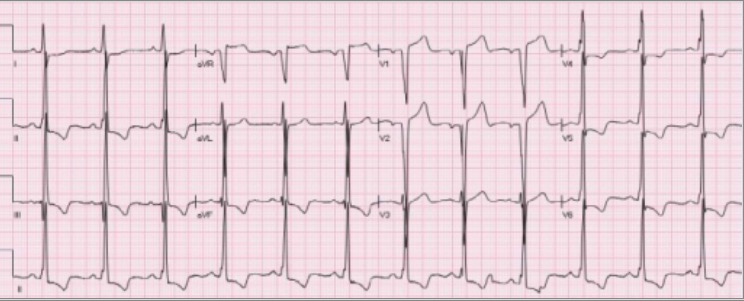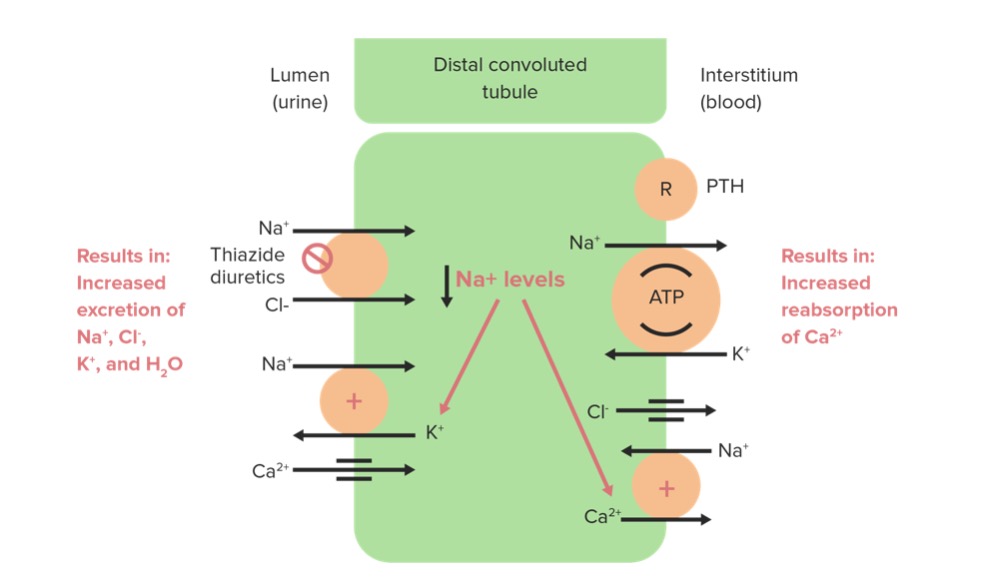Playlist
Show Playlist
Hide Playlist
Hypertension Diagnosis: Three Checks
-
Slides Hypertension.pdf
-
process of diagnosis - hypercortisolism.pdf
-
Download Lecture Overview
00:00 Hello everyone, welcome to Cardiovascular Disease. Our specific topic here is hypertension. 00:06 Dr. Raj, let's start. We'll begin with hypertension. 130/80 mmHg, that is the cut off point to define hypertension, 130 systole, 80 diastole. Stage 1 hypertension extends until 139/89. 00:25 Stage 2 hypertension is blood pressure higher than or equal to 140/90. Now, what do you need to confirm hypertension? At least 2 separate measurements over at least 2 separate office visits. Once you have confirmed hypertension, you should understand at what point you need to administer therapy immediately instead of proceeding with further laboratory testing, lifestyle changes, or non-pharmacologic therapy. Blood pressure higher than 180 systolic over 120 diastolic accompanied by evidence of organ damage should be treated immediately. Anything that we do moving forward, you need to make sure that you confirm your diagnosis always. Those are type of questions that you shall get from every single source, let it be rotations, let it be your residency, let it be any licensing exam. Now, once you go beyond 130/80, what do you need to do? You want to make sure that you understand at what point you need to administer therapy immediately. What does that mean? Well, as we proceed to a hypertension, we will take a look at the differences between primary and secondary. We will be spending a little bit more time on secondary because the exact etiology and pathogenesis become quite obvious to us in the journey towards secondary hypertension becomes very relevant. Primary hypertension, for the most part, we'll be thinking about telling your patient "Hey, we wanted you to lose some weight." Now you're not going to come out and say that, that wouldn't be very nice. So what do you say? Hmmm. "What are you eating? Would you wanna cut down on salt perhaps?" Salt, what is that? Sodium. Hmmm. So you'll start thinking about sodium and its effects on your blood pressure. Whenever sodium is present in your plasma in your blood, guess what it's going to do, it's going to retain some of that fluid, huh. So all I'm doing here is giving you a better idea, more detail-oriented pathophys so that you understand how to deal with something like primary hypertension. As your blood pressure continues to rise, you want to start thinking about "Wow, do I need to administer immediate therapy."? A diastole of 120, huh, what are you thinking about when you think of diastole? The resting phase, everything that we do, close your eyes, everything that we do in medicine you should be able to conceptualize. If you're just reading what is written here, if you just look at my mouth and listen what I have to say so be it, but you have to be able to picture it. So, that's your resting phase. Isn't it? Hmmm, what's resting? How about your blood vessels? Well, if your blood vessels get constricted, what happens, what's that called please? Good. It's called TPR, total peripheral resistance and so therefore if there is increased vasoconstriction of your blood vessel what phase of your blood pressure is going to be affected, the systole or diastole please? The diastole. So, as we move forward or any question that you get in terms of dissecting your blood pressure further, you want to pay attention to why is the volume contributing to my systole or is it the fact that my blood vessels and whether or not it's vasoconstricting or dilating affecting my diastole.
About the Lecture
The lecture Hypertension Diagnosis: Three Checks by Carlo Raj, MD is from the course Hypertension: Basic Principles with Carlo Raj.
Included Quiz Questions
Which of the following constitute the minimum requirements for the diagnosis of hypertension?
- At least 2 separate measurements on 2 separate office visits, with at least > 130/80 mm Hg
- At least 2 separate measurements on 2 separate office visits, with at least > 120/70mm Hg
- At least 2 separate measurements on 2 separate office visits, with at least > 125/79Hg
- At least 2 separate measurements on 2 separate office visits, with at least > 200/120mm Hg
- At least 2 separate measurements on 2 separate office visits, with at least > 180/89 mm Hg
Which of the following is most likely to raise diastolic blood pressure?
- Peripheral vasoconstriction
- Volume expansion
- Tachycardia
- Increased renal output
- Arrhythmia
Customer reviews
2,8 of 5 stars
| 5 Stars |
|
2 |
| 4 Stars |
|
0 |
| 3 Stars |
|
0 |
| 2 Stars |
|
1 |
| 1 Star |
|
2 |
not a good presentation. complicating simple ideas with alot of empty words
The content is mediocre and he patronizes the listener; if he cut out the condescension and focused on teaching it could be improved. I see why they add some talk over portions with another speaker.
Great explanation of the topics, and sometimes funny, I don't get bored with this presentation.
Too fast-talking. No explanation at all, just shooting questions to the sky.





